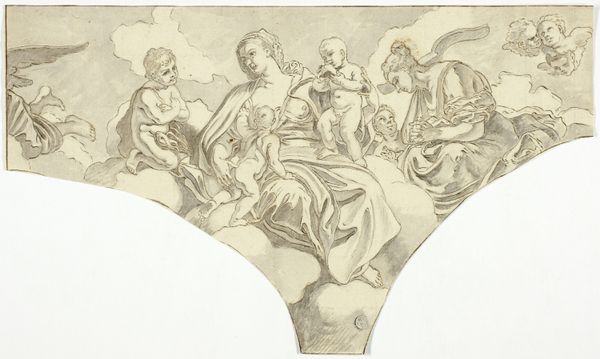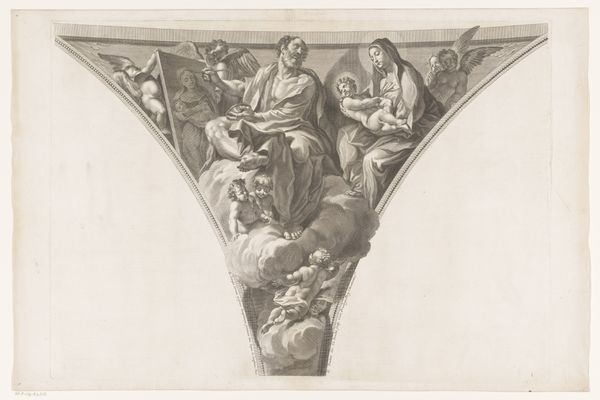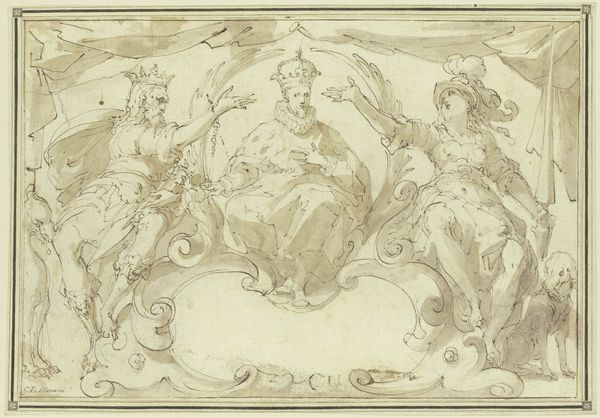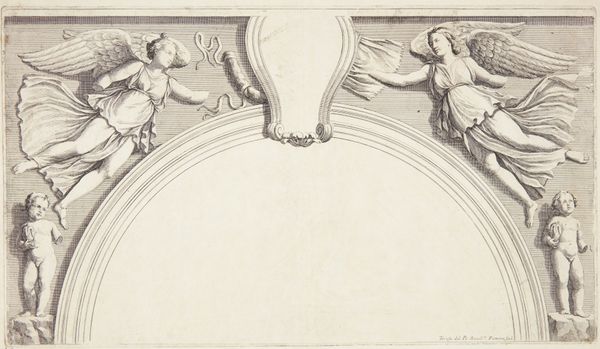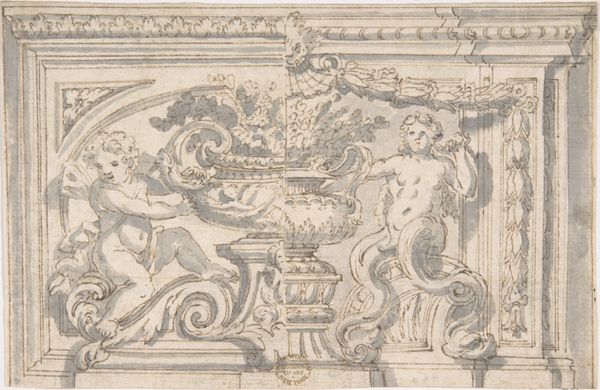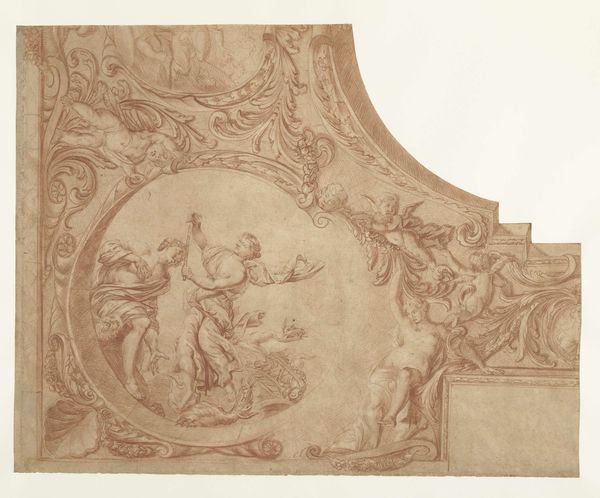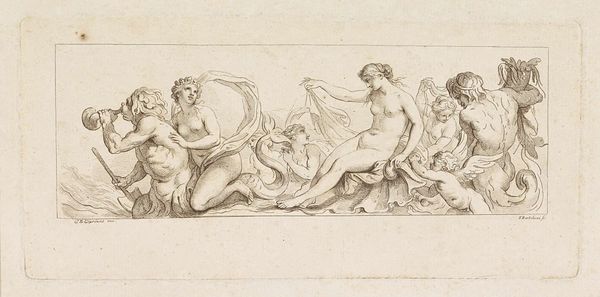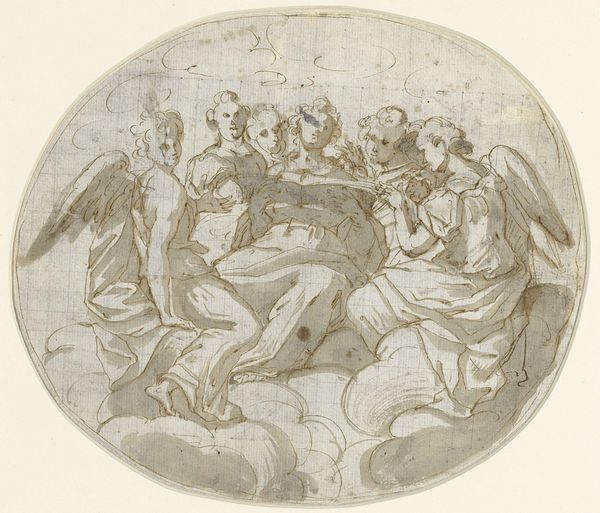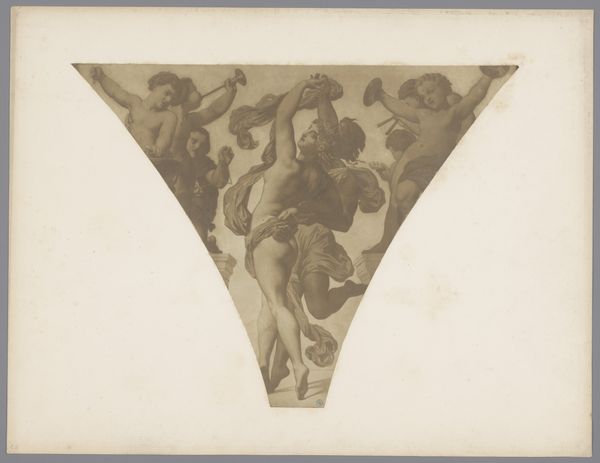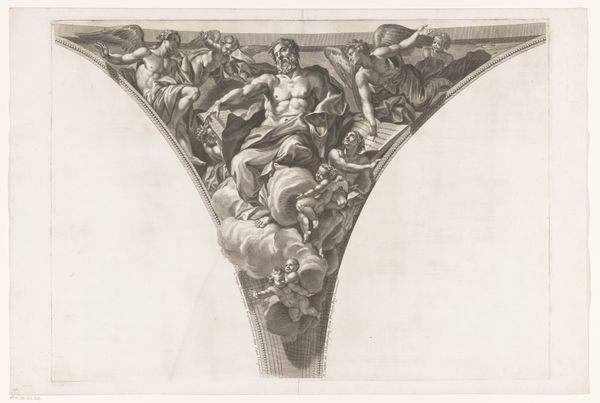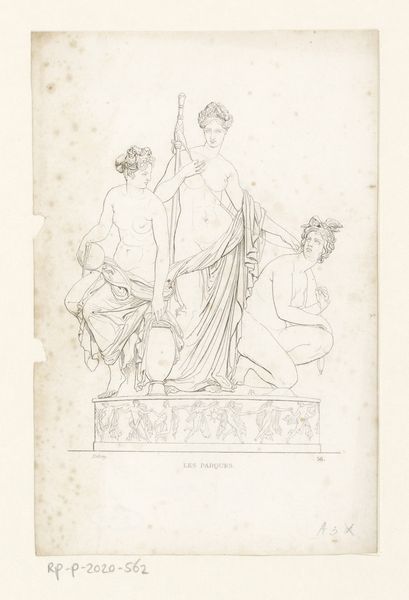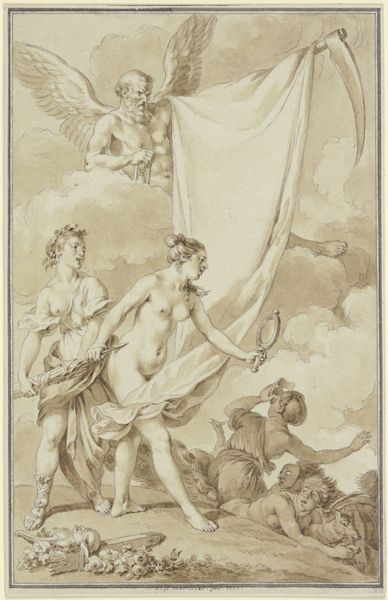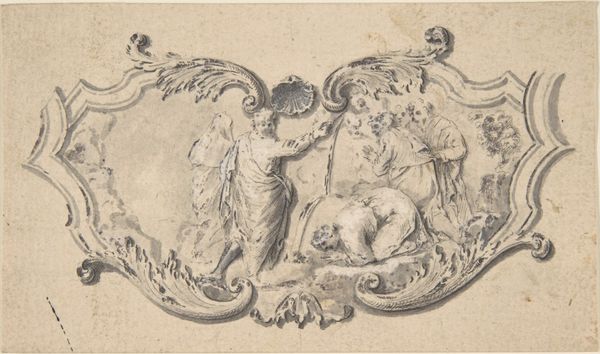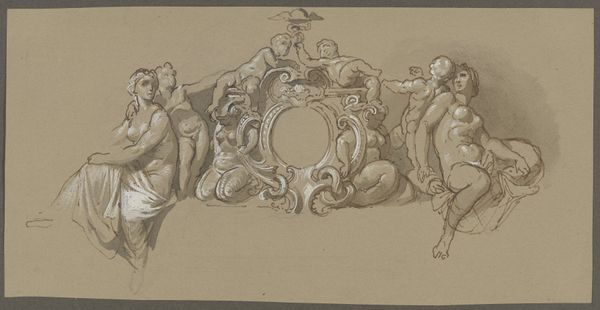
Spandrel Decoration with Seated Allegorical Figures of Hope and Concord n.d.
0:00
0:00
drawing, paper, ink, chalk
#
drawing
#
allegory
#
baroque
#
etching
#
figuration
#
paper
#
ink
#
pencil drawing
#
chalk
#
history-painting
Dimensions: 187 × 355 mm
Copyright: Public Domain
Editor: So, this is Francesco Solimena's "Spandrel Decoration with Seated Allegorical Figures of Hope and Concord," an ink, chalk, and pencil drawing on paper. The figures have a really grand, theatrical quality. What's striking is the obvious message of harmony… yet, does that chain linking them signify restraint, maybe? What do you see in this piece beyond the initial impression? Curator: It's astute to notice that tension. Solimena's baroque style flourished during a time when institutions wielded significant power. This drawing, likely a study for a larger decorative scheme, reflects that world. Consider the 'spandrel' itself - an architectural element often found in churches and palaces. Hope and Concord, idealized and literally chained together, are promoting a specific socio-political ideal. Do you think this imagery could simply celebrate harmony, or might it reinforce established authority? Editor: That's fascinating. The architectural function really reframes it. I was so focused on the artistry that I overlooked the context! It isn't just 'Hope and Concord,' but rather a carefully constructed visual message *for* someone *in* a particular place. Curator: Exactly. The allegorical figures, rendered in such a classical style, borrow from a long tradition of using art to communicate power. Notice how Hope's gaze seems averted, almost submissive to Concord. This is about more than just agreement. What societal structures do you think Solimena's patrons wanted to see supported? Editor: That power dynamic wasn't immediately apparent to me. Looking at it through the lens of patronage, maybe the goal isn’t peace, but solidifying the ruling class’s vision of a controlled, ordered society. I learned that considering art's original context reveals a depth I would have missed. Thank you. Curator: Precisely. Art isn't created in a vacuum; institutions and patrons greatly influence what's made and what messages are broadcast. It gives one much to reflect upon, doesn't it?
Comments
No comments
Be the first to comment and join the conversation on the ultimate creative platform.
